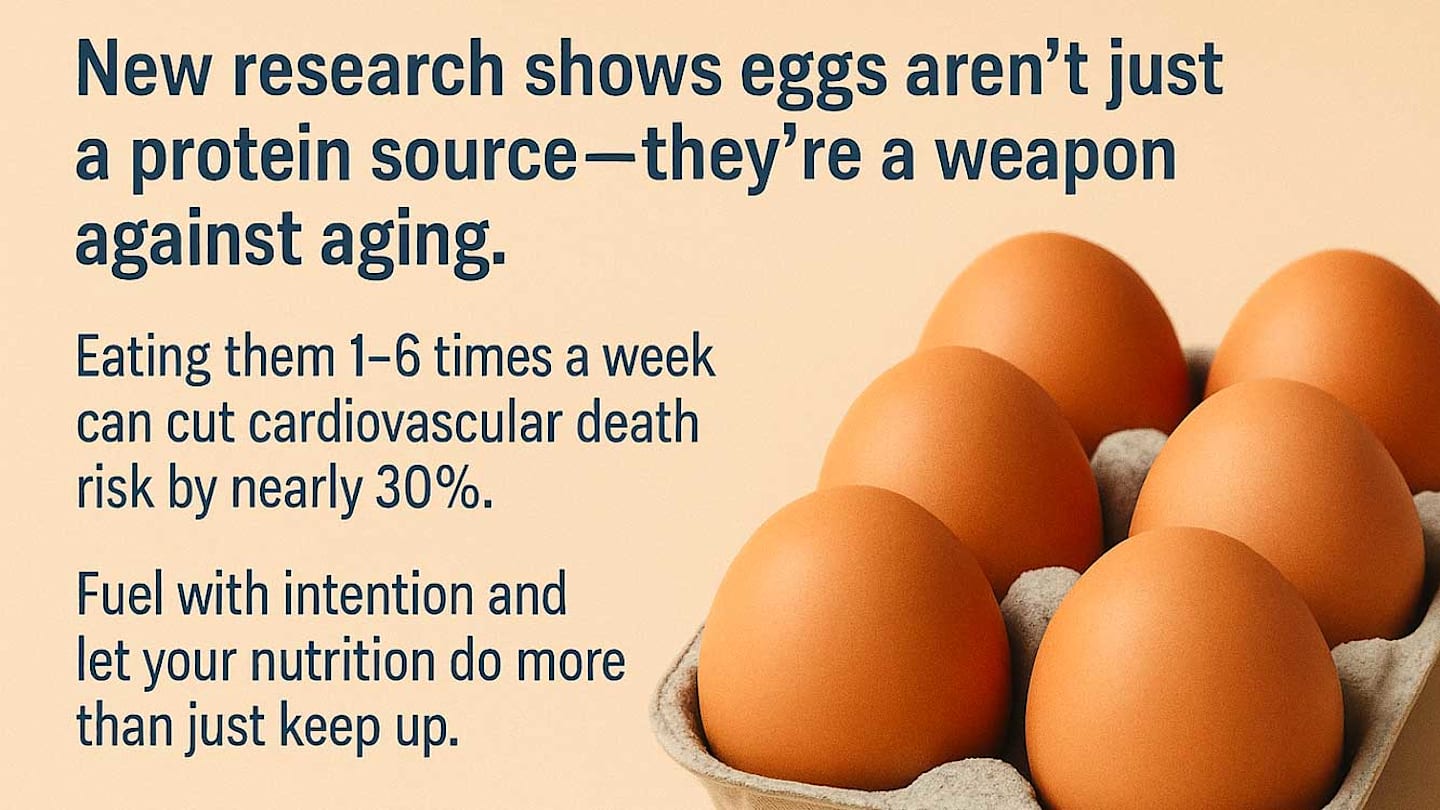Over the years, eggs have taken a beating in the nutrition world—no pun intended. First, eggs were demonized for their high cholesterol content, then cautiously redeemed as “not that bad.” But here’s the truth: if you’re still afraid of eating eggs, you’re operating on outdated science. A recent study on eggs provided another solid reason to include them in your diet, especially if you’re over 70 and want to stay healthy.
17% Lowering Risk of Death
The data showed that adults who ate eggs 1–6 times per week had a 29% lower risk of dying from cardiovascular disease and a 17% lower risk of all-cause mortality. That’s not a small win. That’s massive when considering longevity, especially in a population that typically experiences steep declines in resilience.
But here’s the part I found most interesting: it wasn’t about the total number of eggs consumed. It was about frequency. Spreading out egg consumption across the week—versus crushing a dozen at once—seemed to deliver the most benefit. That tells me it’s not just about the nutrients in eggs; it’s about the pattern of eating them.
We know eggs are nutrient-dense: high-quality protein, choline for brain health, B12 for energy metabolism, and fat-soluble vitamins like A, D, and K2. For athletes, that’s foundational fuel. However, we are now seeing that regular, moderate intake may also contribute to long-term survival—and not just in elite performers, but also in aging adults who want to remain strong, mobile, and independent.
I’ve said it for years: real food wins every time. If it had a face or came from the earth, it probably belongs in your diet. And eggs punch way above their weight class in terms of nutrient density and satiety. Add in the potential to reduce cardiovascular and all-cause mortality, and suddenly, that omelet starts looking like a daily insurance policy.
However, before you decide to cook a dozen eggs a day, the study showed that eating eggs more than six times per week doesn’t add extra benefits, which might suggest there’s a ceiling when it comes to impact. While I understand that this is observational data and not a randomized trial, the results are still compelling enough to include eggs in your diet. Due to the high nutrient quality and longevity of eggs, it’s worth incorporating them into your weekly rotation.
If you’re training hard, aging smart, and looking to build a diet that supports both performance and health span, eggs should be a staple in your diet. They’re simple, accessible, and time-tested. You don’t need a PhD to figure this out—just crack, heat, eat, and repeat.
As always, fuel like you mean it. Lift heavy, move fast, and make every bite count.
